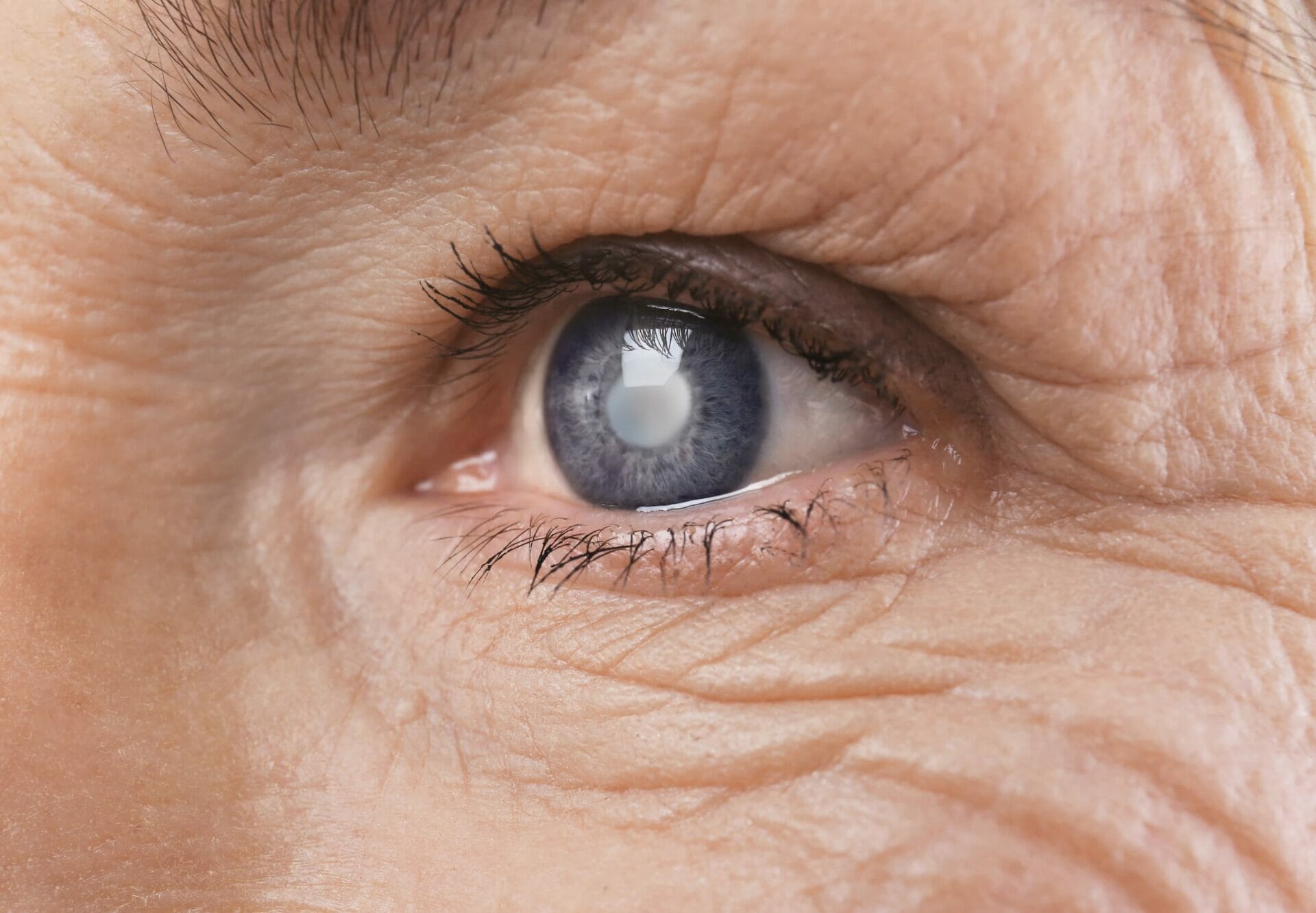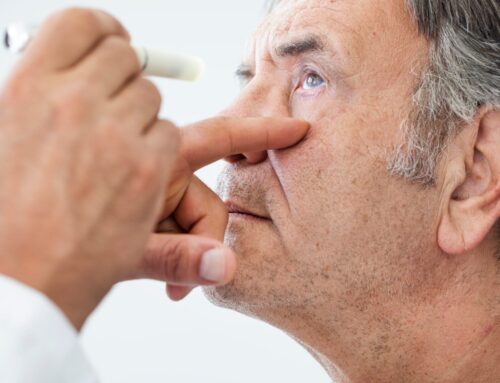
Can Cataracts Be Reversed Naturally?
Cataracts occur when the lens of your eye becomes cloudy and opaque, leading to changes in your vision, such as blurring and dulled colours. These alterations can make daily tasks a challenge.
Cataracts are progressive, meaning they will worsen if left untreated. They can occur for numerous reasons, but the most common is ageing. As you age, proteins and fibres in the eye’s lens clump together, leading to cataracts.
The most common treatment for cataracts is cataract removal surgery, but looking for a natural cataract reversal method is growing in popularity. The reasons include people not wanting to undergo eye surgery or seeking a more holistic approach. However, the question remains — can cataracts be reversed naturally?
Traditional treatment options
Surgical treatment of cataracts is usually the best option due to its high success rate in restoring vision and improving quality of life. Surgeons can perform cataract surgery in two main ways — phacoemulsification and extracapsular extraction.
Phacoemulsification involves surgeons using ultrasound energy waves to break up the cloudy lens. They can then remove it through a small incision. Extracapsular extraction means they remove the lens through a larger incision without breaking it down.
During any type of cataract surgery, the surgeon replaces the lens with an artificial intraocular lens (IOL). The replacement of the lens after removing the cataract is highly successful in restoring vision.
Benefits of cataract surgery
Cataract surgery has many benefits, such as:
- High success rates
- Improved vision
- Minimal discomfort
- Low risk of complications
- Long-lasting results – the makers of artificial IOL implants designed them as a permanent solution to cataracts
Exploring natural remedies
There are numerous amounts of information available online with reference to natural remedies and treatment for various conditions and diseases. And some people prefer trying natural ways to reverse cataracts before considering surgical options.
However, it is essential to remember that many claims about natural remedies for cataracts lack scientific evidence, and that’s why it is not supported by the medical community.
The only confirmed effective treatment for cataracts is surgery.
Let’s explore some of the natural remedies that people decide to try for cataract reversal.
Antioxidants
Some researchers suggest eating a diet rich in antioxidants could slow cataracts’ progression. One study found the antioxidant ginkgo biloba protected rats from radiation-induced cataracts. However, there is insufficient proof to suggest it would affect humans with age-related cataracts similarly.
Antioxidants may help to prevent cataracts from forming. Researchers in Sweden studied more than 30,000 women over the age of 49 and observed them for around seven years. They found that women who ate a diet rich in antioxidants were significantly less likely to develop cataracts than those who did not.
Another 10-year study in Australia found that antioxidants could help reduce the risk of cataracts. Even so, these studies are limited, and others have shown no correlation between antioxidants and cataracts.
Vitamin supplements
Vitamins like lutein, zeaxanthin, vitamin C and beta-carotene are all thought to be excellent for eye health. But getting enough of them in your daily diet can be challenging. If so, a supplement could boost your intake, but conflicting evidence casts doubt on supplements’ positive impact on cataracts.
One study found long-term use of multivitamin supplements reduced the prevalence of cataracts. However, another study’s results suggested vitamin supplements are ineffective.
Omega-3 fatty acids
Some suggest omega-3 fatty acids (found in oily fish, nuts, seeds and leafy green vegetables) can lower your risk of cataracts and reverse existing ones. However, little evidence supports this claim, especially regarding reversing cataracts.
Aloe vera
The aloe vera plant is an anti-inflammatory and a powerful antioxidant, so it could help maintain your eye health. Different sources claim that aloe vera could reduce and delay the signs of cataracts, but no scientific evidence supports this assertion.
Garlic
Some say eating or drinking a tea of raw garlic daily could improve cataracts. Few have examined this claim, but one study did show that garlic extract can potentially delay cataracts’ progression.
Rose water
You can use rose water to prevent dryness in your eyes, but some believe it can also prevent and slow the growth of cataracts. People think it stops intraocular inflammation — one possible cause of cataracts. However, no research into this natural remedy confirms that it works.
Remember that while these natural remedies make bold claims about reversing or slowing cataracts’ progression, supporting evidence is lacking. Cataract surgery is the only tried and tested method of treating cataracts supported by science and success rates.
Lifestyle changes for prevention
Leading a healthy lifestyle may help prevent cataracts and potentially slow their progression.
Some top tips for a healthy lifestyle include the following:
- Eat at least five servings of fruits and vegetables a day
- Choose wholegrain foods
- Incorporate foods high in protein, such as eggs, fish, lean meat and legumes into your diet
- Increase your intake of foods high in antioxidants
- Avoid highly processed foods, sugary foods and drinks, and foods high in saturated fat
While eating a balanced diet for your eye health, you can protect your eyes by shielding them from ultraviolet (UV) rays. Wear UV-protection glasses and hats that shade your eyes, too. UV rays damage your eyes over time and can significantly increase your risk of developing cataracts.
Consulting an eye care specialist
If you think you have cataracts or your doctor has diagnosed you with cataracts, consult an eye care specialist before trying home remedies. They can advise you on the best treatment for your condition and whether surgery is the right option at this time.
Some home remedies may cause more harm than good and it’s not worth damaging your vision or health by trying them.
Book a consultation with Eye Clinic London
Eye Clinic London’s team of expert ophthalmologists can support your eye health and provide the correct treatment based on your needs.
If you have cataracts and want to restore your vision, book a consultation with Eye Clinic London today. Simply fill in our online form to request a return call and a caring team member will be in touch.
Alternatively, you can call us on 0203 807 5063 to book your first consultation.
Sources
- https://www.nei.nih.gov/learn-about-eye-health/eye-conditions-and-diseases/cataracts
- https://www.nhs.uk/conditions/cataracts/
- https://www.medicalnewstoday.com/articles/how-to-dissolve-cataracts-naturally#outlook
- https://www.healthline.com/health/rose-water-for-eyes
https://www.england.nhs.uk/wp-content/uploads/2022/07/Making-a-decision-about-cataracts.pdf

About the expert
Mr Hamada | Consultant Ophthalmologist and Corneal Surgeon
MD, MSc, DO (hons), FRCSEd, FRCOphth I am Samer, founder and consultant ophthalmic surgeon with over 20 years’ experience in ophthalmology. I am a world-renowned specialist in cornea, cataract and refractive surgery. I’m not only a leading surgeon but also the only dual fellowship trained in corneal diseases in children from reputable institutions in the UK. At Eye Clinic London I work closely with other consultant ophthalmologists, optometrists and orthoptists to achieve the best outcomes for our patients. Our main aim is to make sure our patients get the safest and best treatments available to them. We put your safety before anything else so you can rest assured that if you choose us you will be in the best and safest hands.



